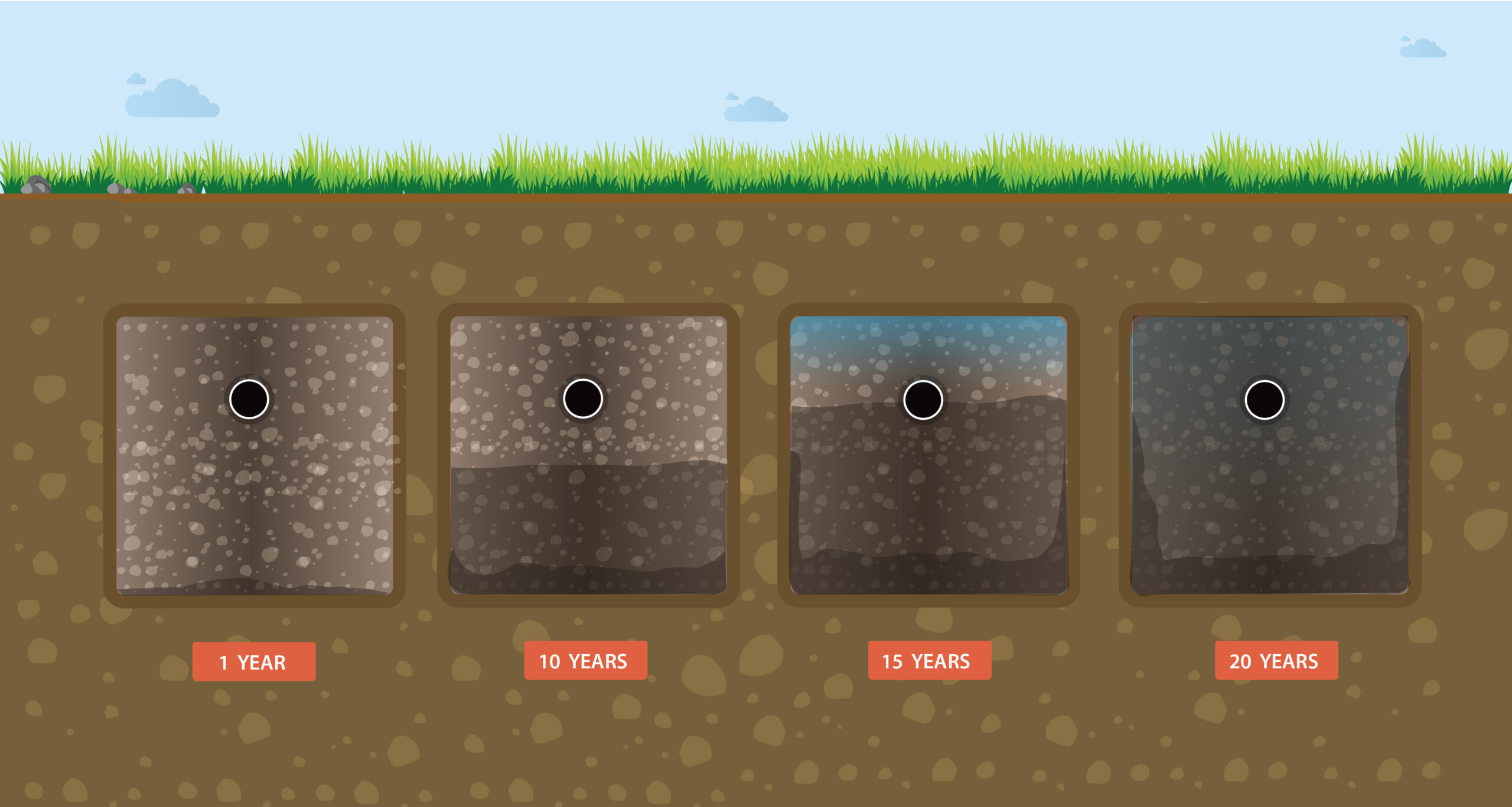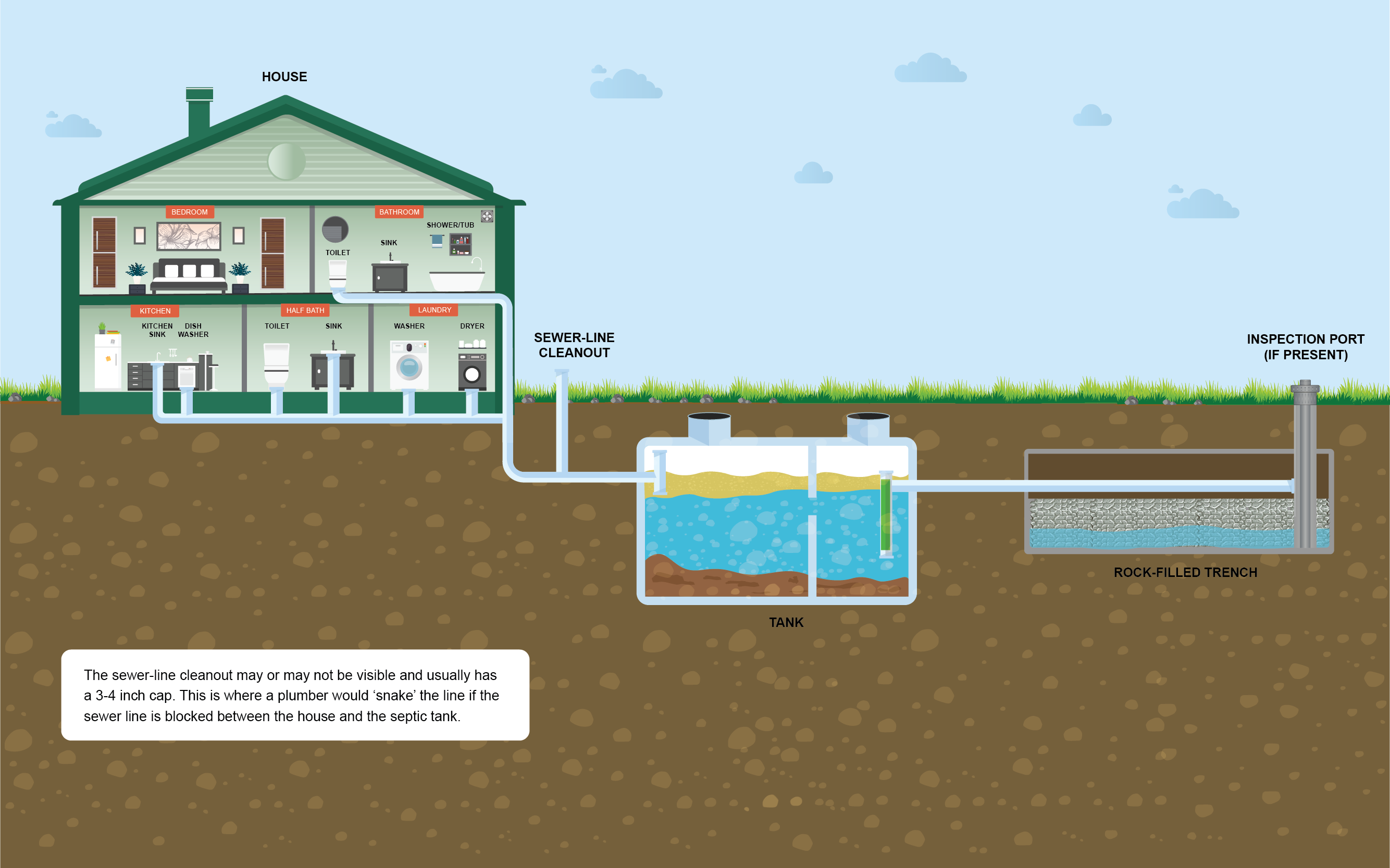Winter rains bring much-needed water to California’s Central Valley, but they can also spell trouble for septic systems. If your property has a septic tank, you may notice issues like slow drains, backups, or even standing water near your drain field during wet months.
Understanding how heavy rainfall affects your system—and taking proactive steps—can help prevent costly damage and keep your system running smoothly all season long.
How Rain Affects Septic Systems
1. Saturated Drain Fields Can’t Absorb Wastewater
Your drain field (also called a leach field) is where liquid waste from your septic tank is naturally filtered into the soil. However, when the ground becomes overly saturated from heavy rain, it loses its ability to absorb more water.
📌 Warning Signs:
- Slow-draining sinks, tubs, or toilets
- Gurgling sounds when flushing
- Standing water or soggy soil near your drain field
- Sewage odors in your yard
If your drain field is too wet, wastewater from your home has nowhere to go, leading to backups inside your plumbing or on your property.
2. Increased Water Usage Makes It Worse
During winter, families tend to use more water—longer showers, holiday gatherings, and more time spent indoors all contribute. If your drain field is already struggling due to rain, additional water use can push it over the edge.
💡 Pro Tip: Reduce water use by spreading out laundry loads, taking shorter showers, and fixing any leaky fixtures during the rainy season.
3. Erosion & Flooding Can Damage Septic Components
Heavy rains and storms can wash away soil around your septic system, potentially exposing pipes, lids, or even the tank itself. Flooding can also damage electrical components in modern septic systems that rely on pumps or alarms.
📌 Protect your system by:
✔️ Making sure septic tank lids are properly sealed
✔️ Checking for exposed pipes or signs of erosion
✔️ Ensuring downspouts and gutters divert water away from your drain field
What to Do If Your Septic System Is Struggling in Rainy Weather
1. Avoid Using Excess Water
If your system is draining slowly after heavy rains, reduce your water usage to give the drain field time to recover. Wait a few days before doing large loads of laundry or running the dishwasher frequently.
2. Check for Pooling Water Near Your Drain Field
If you notice standing water in your yard, your system is likely overloaded. While minor pooling may resolve itself once the ground dries out, large amounts of standing water could indicate a serious problem.
⚠️ DO NOT:
❌ Dig into the drain field or drive heavy equipment over it
❌ Use chemical drain cleaners (they can damage the bacteria in your septic tank)
❌ Pump the tank if the drain field is still saturated (it won’t solve the underlying issue)
3. Call a Professional for an Inspection
If slow drainage or standing water persists for more than a few days, it’s time to call a septic professional. A technician can check for issues like:
✅ A clogged drain field
✅ Broken or collapsed pipes
✅ Excessive sludge buildup in the tank
📞 Need help? Call Sequoia Pumping LLC at (559) 233-2400 for an inspection!
Learn what to do if you have a septic system emergency.
How to Prevent Septic Problems Before Rainy Season
1️⃣ Schedule Routine Septic Pumping
Regular pumping (every 3-5 years) removes sludge and helps prevent overflow issues during wet months.
2️⃣ Inspect & Maintain Your Drain Field
Ensure your drain field is free of heavy objects, structures, or compacted soil that could prevent proper drainage.
3️⃣ Divert Rainwater Away from Your System
- Use gutters, downspouts, and drainage ditches to redirect water away from your septic system.
- Avoid planting trees or bushes near the drain field, as roots can clog pipes.
Final Thoughts
Septic systems can handle normal rainfall, but heavy winter storms can cause serious problems if your system isn’t well-maintained. By understanding how rain impacts your septic system and taking preventative steps, you can avoid backups, costly repairs, and nasty surprises this winter.
🔧 Don’t wait until it’s too late—schedule a septic inspection or pumping before the rainy season! Call Sequoia Pumping LLC at (559) 233-2400 today.





